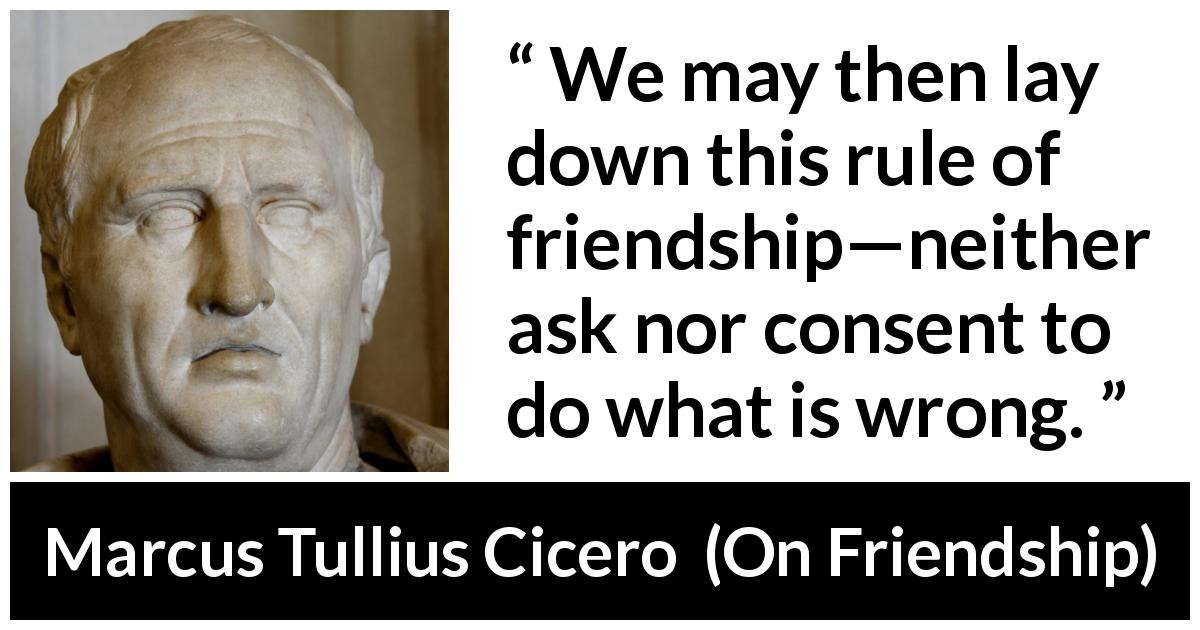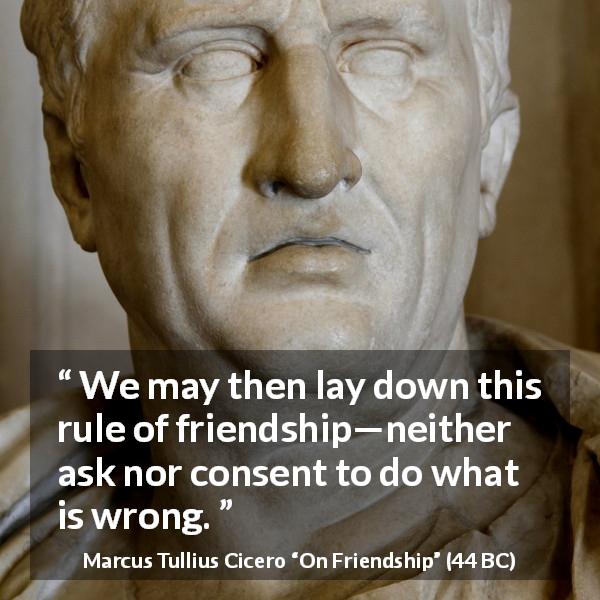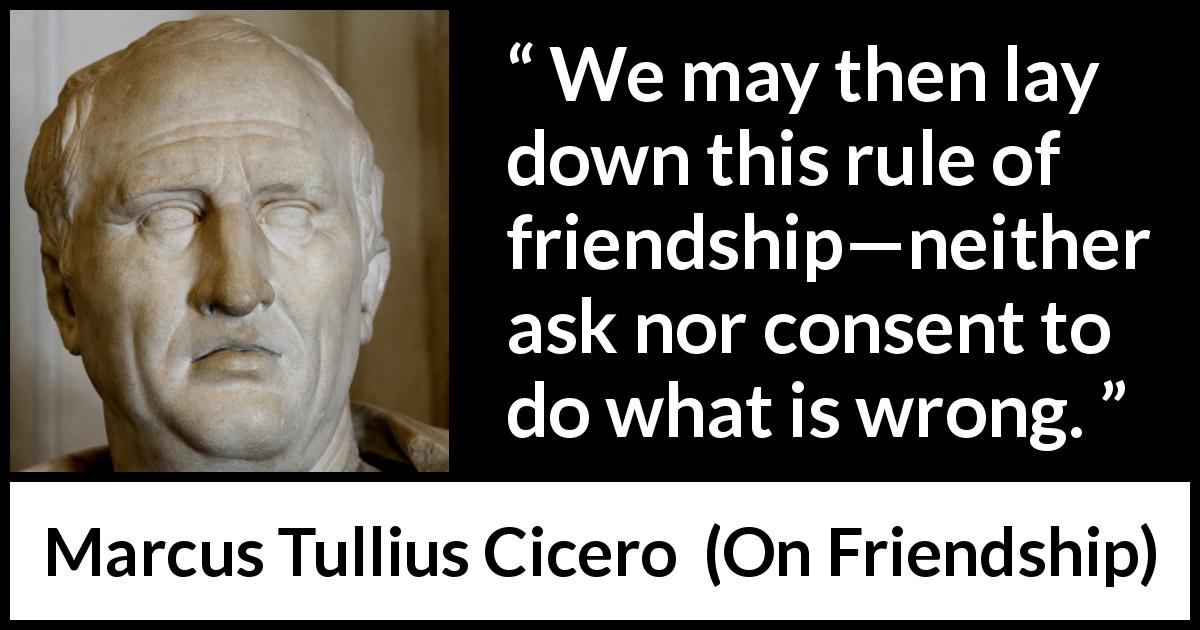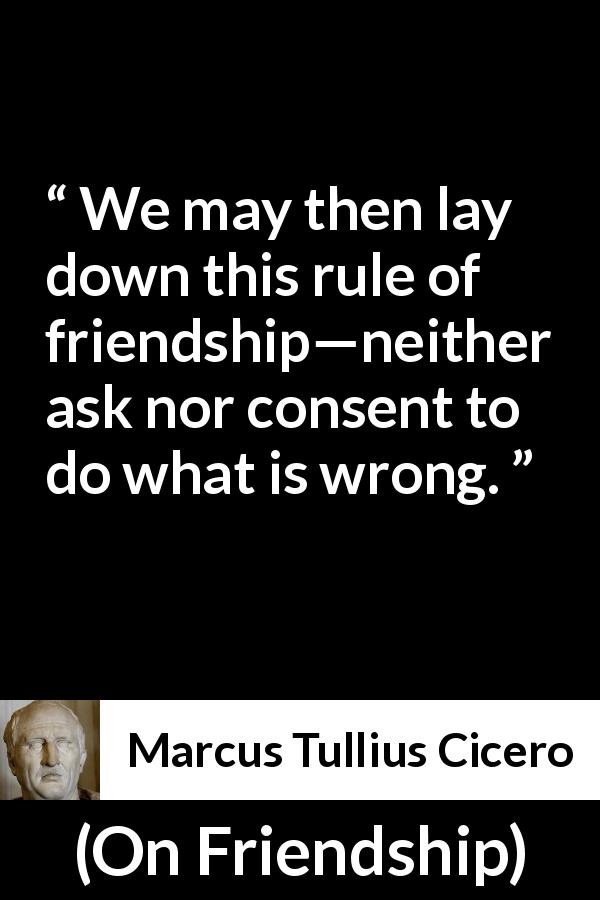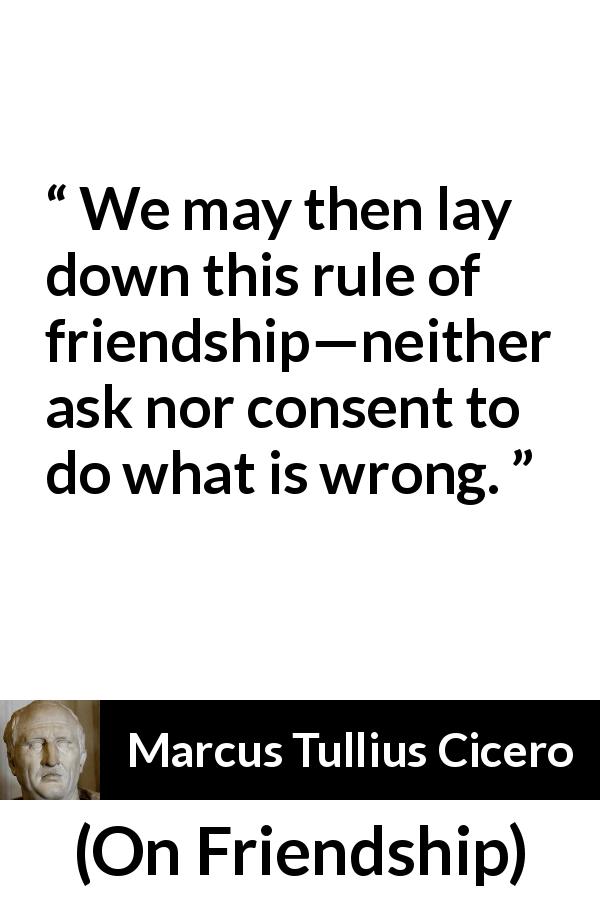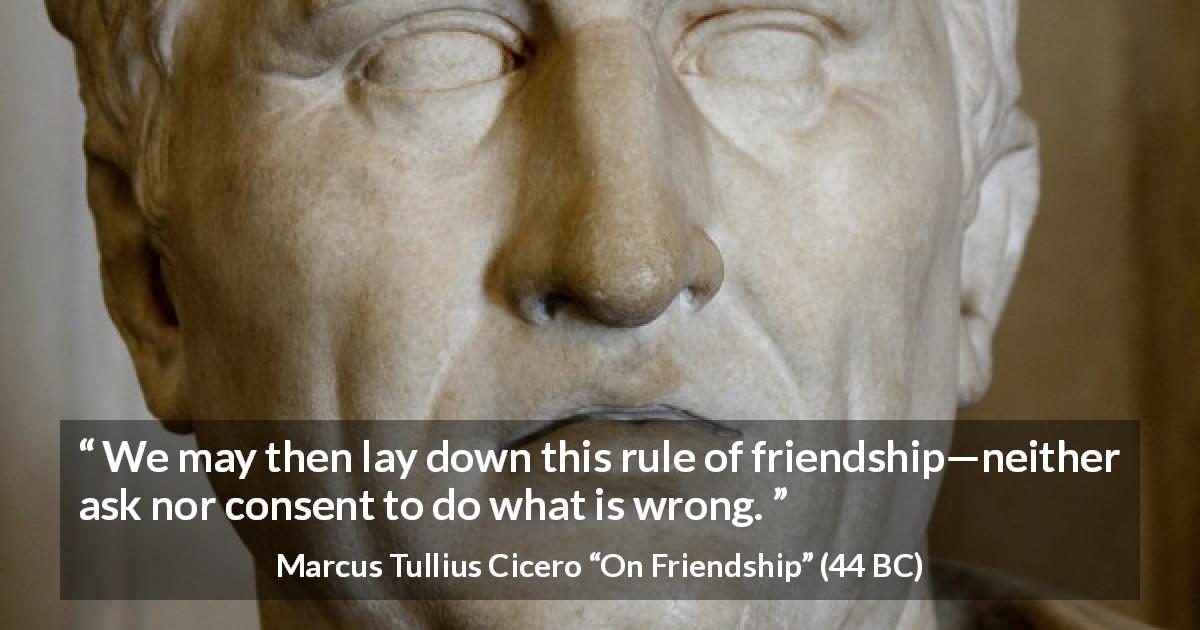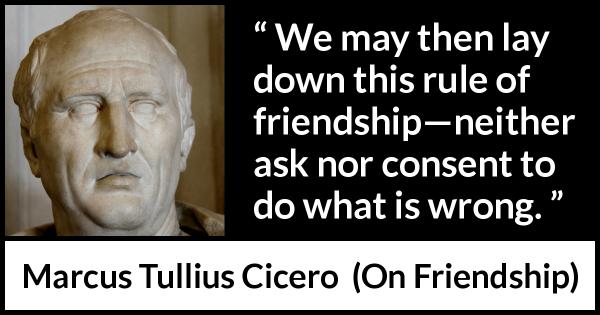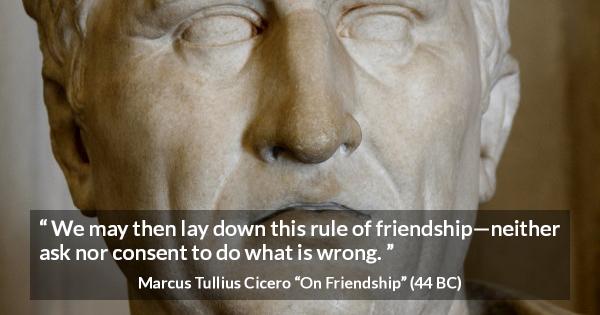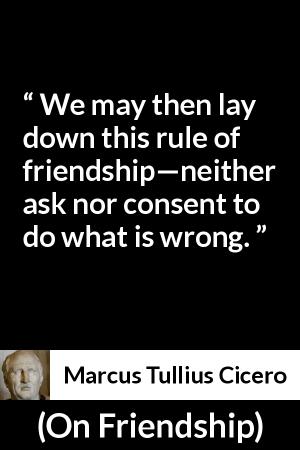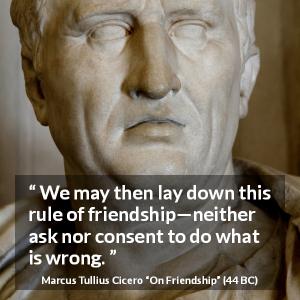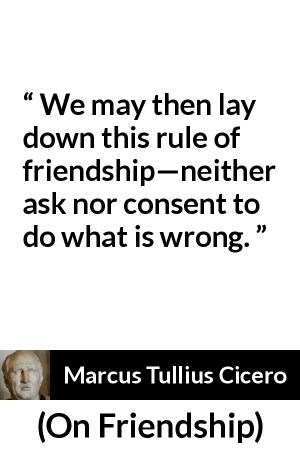“ We may then lay down this rule of friendship—neither ask nor consent to do what is wrong. ”
Marcus Tullius Cicero, On Friendship (44 BC). copy citation
| Author | Marcus Tullius Cicero |
|---|---|
| Source | On Friendship |
| Topic | friendship wrong |
| Date | 44 BC |
| Language | English |
| Reference | |
| Note | Translated by E. S. Shuckburgh |
| Weblink | http://www.gutenberg.org/files/2808/2808-h/2808-h.htm |
Context
“In the case of such men as these there is no point in saying that one of them would not have obtained such a request if he had made it; for they were men of the most scrupulous piety, and the making of such a request would involve a breach of religious obligation no less than the granting it. However, it is quite true that Gaius Carbo and Gaius Cato did follow Tiberius Gracchus; and though his brother Caius Gracchus did not do so at the time, he is now the most eager of them all.
12. We may then lay down this rule of friendship—neither ask nor consent to do what is wrong. For the plea "for friendship's sake" is a discreditable one, and not to be admitted for a moment. This rule holds good for all wrong-doing, but more especially in such as involves disloyalty to the republic.” source
12. We may then lay down this rule of friendship—neither ask nor consent to do what is wrong. For the plea "for friendship's sake" is a discreditable one, and not to be admitted for a moment. This rule holds good for all wrong-doing, but more especially in such as involves disloyalty to the republic.” source
